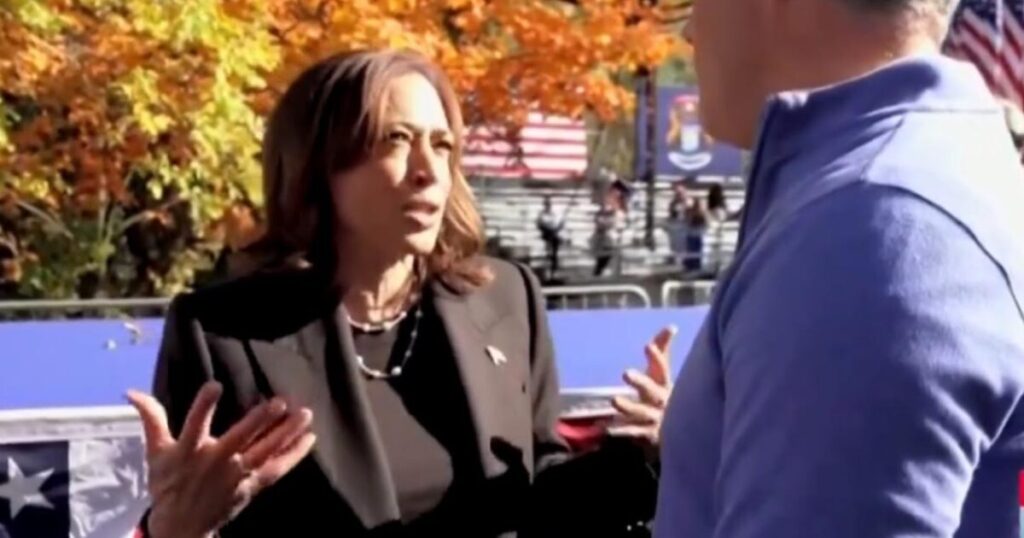Kamala Harris’s recent interview with NBC’s Peter Alexander following her remarks in Grand Rapids, Michigan, raised eyebrows as she struggled to articulate a clear response regarding a policy she might have approached differently than President Biden over the past three and a half years. When previously confronted with a similar question, Harris had stated unequivocally that she would not have done anything differently, leading to scrutiny and criticism. In an attempt to navigate the question more effectively this time, Harris emphasized the traditional role of a vice president and her commitment to supporting the president’s agenda.
In her response, Harris pointed out that vice presidents typically do not criticize their presidents, citing the importance of maintaining a productive working relationship. She quoted President Biden’s assertion that every president must make their own decisions and “cut their own path,” suggesting that her role is not one of opposition but rather collaboration. This response, while consistent with the norms of the vice presidency, may have come off as a deflection, as Alexander pressed for a specific policy comparison, indicating that Harris’s position may lack the clarity and decisiveness that the public might expect from a figure in her role.
Harris then pivoted to discussing her personal experiences and how they shape her policy priorities. She articulated her focus on healthcare, specifically advocating for Medicare to cover home health care, which resonates with her experiences caring for her mother. This personal touch aims to connect her policy positions to her lived experience, a strategy she has employed in various contexts to humanize her political agenda. However, while she provided specific examples of policies she champions, such as housing initiatives and support for small businesses, the initial query about what she would have changed still loomed large.
Further, Harris highlighted her intention to address the affordability of housing and economic opportunities, particularly for young Americans. By mentioning a $25,000 down payment assistance program, she sought to validate her commitment to making the “American dream” attainable for young people, a demographic facing significant economic challenges. Nonetheless, her overarching discourse still felt like an attempt to navigate the political landscape rather than a direct acknowledgment of the Biden administration’s decision-making and its consequences over the years.
The exchange ultimately exemplified the challenges faced by vice presidents in balancing loyalty to the president while asserting their own policy perspectives. Harris’s struggle to directly answer the interview question may reflect broader communication issues within the administration, where clear messaging is crucial amid political rivalries and election pressures. Her responses also spotlight the importance of authenticity and accountability, particularly as the 2024 election cycle heats up and voters demand more transparency from their leaders.
In summary, Kamala Harris’s interview with Peter Alexander showcased the complexities of her role as vice president and her attempts to define her policies without appearing critical of President Biden. While she touched on her personal experiences and key policy initiatives, the lack of a straightforward answer regarding potential differences in approach raised questions not only about her campaign strategy but also about the administration’s unified messaging moving forward. As both Harris and Biden prepare for the next election, establishing a coherent narrative around their accomplishments and future goals will be critical to gaining public trust and support.

